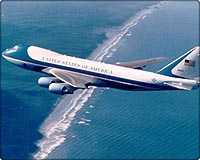| . |  |
. |
Washington (AFP) Dec 2, 2009 The Obama administration sought Wednesday to win firmer backing from Islamabad in fighting extremism by pledging to sharply step up support for Pakistan, a nuclear-armed nation wary of US actions. Islamabad asked Washington to help ensure "there would be no adverse fallout on Pakistan" after US President Barack Obama announced in a speech Tuesday he would send 30,000 more troops to neighboring Afghanistan. Secretary of State Hillary Clinton tried Wednesday to reassure Pakistan it would have a long-term partner in Washington as she gave testimony to US lawmakers about the new strategy. "We will significantly expand support intended for Pakistan to develop the potential of their people," Clinton told the Senate Foreign Relations Committee, vowing not to repeat past US mistakes in the region. The chief US diplomat said those errors had allowed Taliban and Al-Qaeda elements to thrive in the border regions of Pakistan, a country she warned that had a nuclear arsenal. "The case for action against Al-Qaeda and its allies has always been clear, but the United States' course of action over the last eight years has not," she said, alluding to the war in Iraq launched by president George W. Bush. With the United States distracted, "the Taliban gained momentum in Afghanistan, and the extremist threat grew in Afghanistan," she said. Speaking later to the House Foreign Affairs Committee, Clinton welcomed the "abrupt about-face" Pakistan has made in the last year in launching military campaigns against the Pakistan Taliban in the border regions. "They have taken an important first step, but they need to take more steps in their owns best interests." Washington has been urging Islamabad to do more to stamp out Al-Qaeda sanctuaries and stem the flow of Taliban rebels hiding out in Pakistan and slipping into Afghanistan to attack US and other foreign troops. In an interview with CNN television, General James Jones, Obama's national security adviser, said that Washington has evidence that Al-Qaeda, under increasing pressure, is moving from Pakistan to Somalia and Yemen. "This organization will always seek the ungoverned spaces or areas where they perceive they can operate under the radar," Jones told CNN. Clinton told the senators that the United States "will develop a long-term, sustainable relationship with Afghanistan and Pakistan so that we do not repeat the mistakes of the past," she said. With Obama calling for a 30,000-strong troop surge over six months and for a withdrawal to begin in 19 months, Clinton stressed the increasing importance of non-military assistance over the long-term in both countries. The Congress has already adopted legislation sending 1.5 billion dollars in economic and other aid to Pakistan over the next five years. The United States wants to shift "the calculus of neighboring countries from competition for influence to cooperation and economic integration," she said. Clinton, who visited Pakistan at the end of October, said she detected a shift in Pakistani public opinion. Like Americans, Pakistanis increasingly see a common enemy in the Taliban, a militant group with alleged links to elements of the Pakistani military and intelligence, she said. But Pakistan has raised fears that an influx of soldiers into Afghanistan could again push militants over the border, destabilizing an already-troubled region, and such fears tempered Islamabad's reaction to Obama's announcement. A foreign ministry statement Wednesday said the US must work with Islamabad to ensure "there would be no adverse fallout on Pakistan." The statement made no mention of welcoming the troop increases, which many fear could be counterproductive for Pakistan. Analysts said Obama addressed some concerns in his speech, but he must still overcome Pakistan's suspicions about rival India's aims in Afghanistan as well as lingering doubts over whether Washington will become a true partner. Jones said Washington has "plenty of assurances" that Pakistan has good control over its arsenal, but said militant groups sought a nuclear weapon and would have "no compunction against" using it. "I think it's more remote (their getting a weapon) now because we've brought a lot of attention to it over the last few years, but it's certainly something that keeps everybody awake at night," Jones told CNN. Share This Article With Planet Earth
Related Links News From Across The Stans
 Orders for US troops signed on Air Force One: Gates
Orders for US troops signed on Air Force One: GatesWashington (AFP) Dec 2, 2009 The Pentagon chief said Wednesday he signed orders to send 30,000 troops off to war aboard Air Force One, shortly after President Barack Obama unveiled his decision to surge forces into Afghanistan. The formal deployment orders were signed by Defense Secretary Robert Gates on the president's flight back to Washington from the West Point military academy, where Obama gave an address to the na ... read more |
|
| The content herein, unless otherwise known to be public domain, are Copyright 1995-2009 - SpaceDaily. AFP and UPI Wire Stories are copyright Agence France-Presse and United Press International. ESA Portal Reports are copyright European Space Agency. All NASA sourced material is public domain. Additional copyrights may apply in whole or part to other bona fide parties. Advertising does not imply endorsement,agreement or approval of any opinions, statements or information provided by SpaceDaily on any Web page published or hosted by SpaceDaily. Privacy Statement |